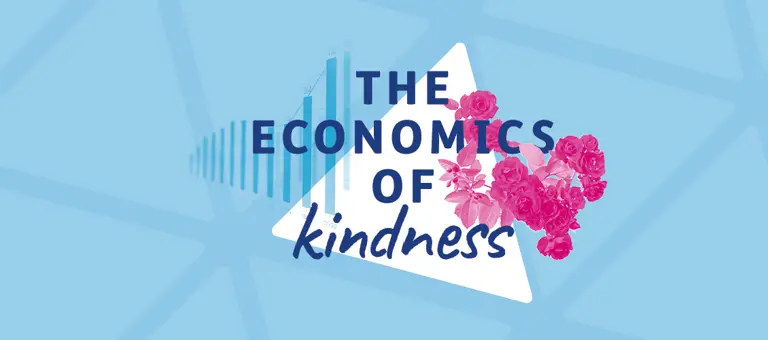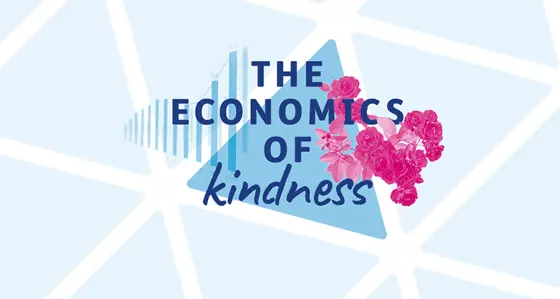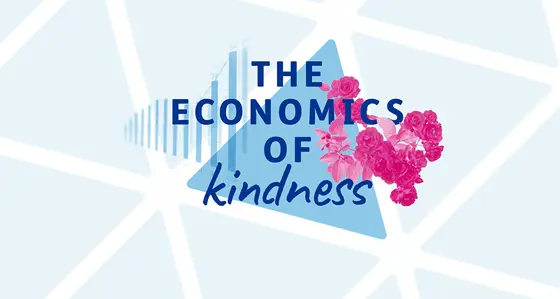
Kindness should be table stakes for your organisation - here's how
In a time when many CEOs are accused of burning out their staff, it’s easy to miss a critical factor that differentiates successful companies from underperforming ones: kindness.
This article by a Baringa partner first appeared in the Financial Times' Agenda Magazine.
My firm, Baringa, recently polled 6,000 people worldwide and discovered that companies with a reputation for being kind are 35% more likely to have doubled their earnings before interest, tax and amortization (EBITDA) over the past decade, compared to companies known for being unkind. By contrast, companies with a reputation for unkindness are 58% more likely than “kind” firms to have seen their Ebitda shrink in the same period. So if businesses can be — or can gain a reputation for being — kind, they are more likely to succeed.
But what is kindness? Asked to define it, U.S. respondents described kind organizations as those that operate with integrity and honesty, treat staff fairly and pay them well, are transparent with customers (such as by avoiding hidden fees), and strive to give back to the community or perform charity work — in that order. So, take actions that are consistent with these qualities, and communicate them, and your business has a chance of gaining a reputation for kindness, which correlates with financial success.
Here is how such choices can affect different parts of an organization’s strategy.
Consumers
According to our research, 81% of U.S. respondents reported they are more likely to purchase from kind companies during an economic downturn. Likewise, 57% of U.S. consumers have refused to buy a product or service in the last two years because they felt the selling company was unkind. Put crudely, this indicates that consumer goods and services are about more than the four Ps of marketing. Your company’s wider reputation will also be taken into account, and should be considered alongside your products, their price, their promotion and their place.
And even if improving your reputation results in a marginal difference, marginal differences can be enough. Most consumer product categories are mature, with an average annual revenue growth of only 1% to 3%. In such a finely balanced environment, the lightest tip of the scales can be crucial.
Employees
We asked employees what factors motivated them to go above and beyond for their employer. Perhaps surprisingly, “transparent and honest communication” and “being genuinely listened to, valued and trusted” — both kind behaviors — were both as popular as “more money,” with all three being selected by 94% of U.S. respondents, followed by “shared ethical values” (91%).
How should companies respond? Firstly, by empowering the soft skills of the HR department. Secondly, by encouraging behaviors consistent with consumers’ definitions of kindness, such as payroll giving and corporate social responsibility days, which are effective ways to signal the shared ethical values that people are keen to hold.
Suppliers and Partners
Organizations that fail to foster a culture that supports kindness risk suffering from a lack of trust, hindering collaboration and often resulting in poor supplier and partner relationships. This breakdown of trust can lead to added processes and administration, replacing natural collaboration with less effective or less efficient alternatives.
This means looking at procurement and contract management through a kindness lens as well as the more usual legal, financial and governance lenses. If you are seeking to communicate your kind attributes to your customers via marketing, and to your employees via internal communications, you should find a way to communicate them to your suppliers and partners too.
The Board
No company is inherently perfectly kind or perfectly unkind — business morals are more nuanced than those of a children’s TV show. But it is possible to create a culture that encourages kindness throughout the organization, and if this happens, the firm stands a higher chance of success. So how is this done?
First and most obviously, culture is set by the top. A company’s top executive management needs to behave, and be seen to behave, in a way consistent with the values the public associates with kindness.
But kindness can be integrated more deeply. For example, firms can set kindness-aligned KPIs — employee net promoter scores; true costs of products versus initial advertised costs of products, and so on — and consider them alongside more traditional financial metrics. At the same time, when faced with difficult decisions, senior leadership and boards should consider if those decisions are consistent with the organization's values of kindness and how they can amend those decisions to be most kind.
Take these steps, and your company will be more likely to be in the cohort of businesses in our study that at least doubled their Ebitda. And refreshingly, the most successful course is also the most ethical one too.
Copyright 2024, Money-Media Inc. All rights reserved. Redistributed with permission. Unauthorized copying or redistribution prohibited by law.
About the author

Jeff Hartigan
Jeff’s an industrial engineer by training – he brings the methodologies and systems-thinking approaches of the trade to his work with the consumer-packaged goods industry. Over the last 35 years, he’s deconstructed the industry’s most complex challenges, and worked with clients in more than 20 countries around the world. Jeff briefly considered retirement, but ‘insanely curious’ by nature, he’s returned to build Baringa’s US consumer products practice.
Related Insights
Trending content in this series

Introducing the Economics of Kindness
At Baringa we’re convinced that, no matter the macroeconomic backdrop, kindness in business really does pay. That’s why we’re taking this opportunity to explore the economics of kindness across four pillars: people, business, leadership and investors.
Read more
People – planet – profit, in that order
The notion of a ‘triple’ bottom line – people first, then planet, then profit – is reshaping how organisations around the world do business. They’re bringing corporate kindness to the fore as we enter a new type of economy, and the businesses that organise themselves in this way will be the ones that succeed.
Read more
Redefining kindness in the workplace
Corporate kindness is all about the impact an organisation has on the world, engaging in responsible practices that benefit their customers, employees, and the communities they operate in.
Read more
Bringing kindness back to the top of the leadership agenda
Should kindness be back at the top of the leadership agenda? Managing Partner Adrian Bettridge discusses how when we lead with kindness, we generate lasting success for ourselves, our clients and our businesses.
Read more
It’s not easy to be a kind leader
Can leaders be kind all of the time? What gets in the way? Ian Peters reflects on the challenges and trade-offs of trying to be kind to all stakeholders.
Read more
Our Economics of Kindness journey: the story so far
What have we learned about kindness in business and in our public organisations? Does it pay? And if so, how?
Read moreIs digital and AI delivering what your business needs?
Digital and AI can solve your toughest challenges and elevate your business performance. But success isn’t always straightforward. Where can you unlock opportunity? And what does it take to set the foundation for lasting success?